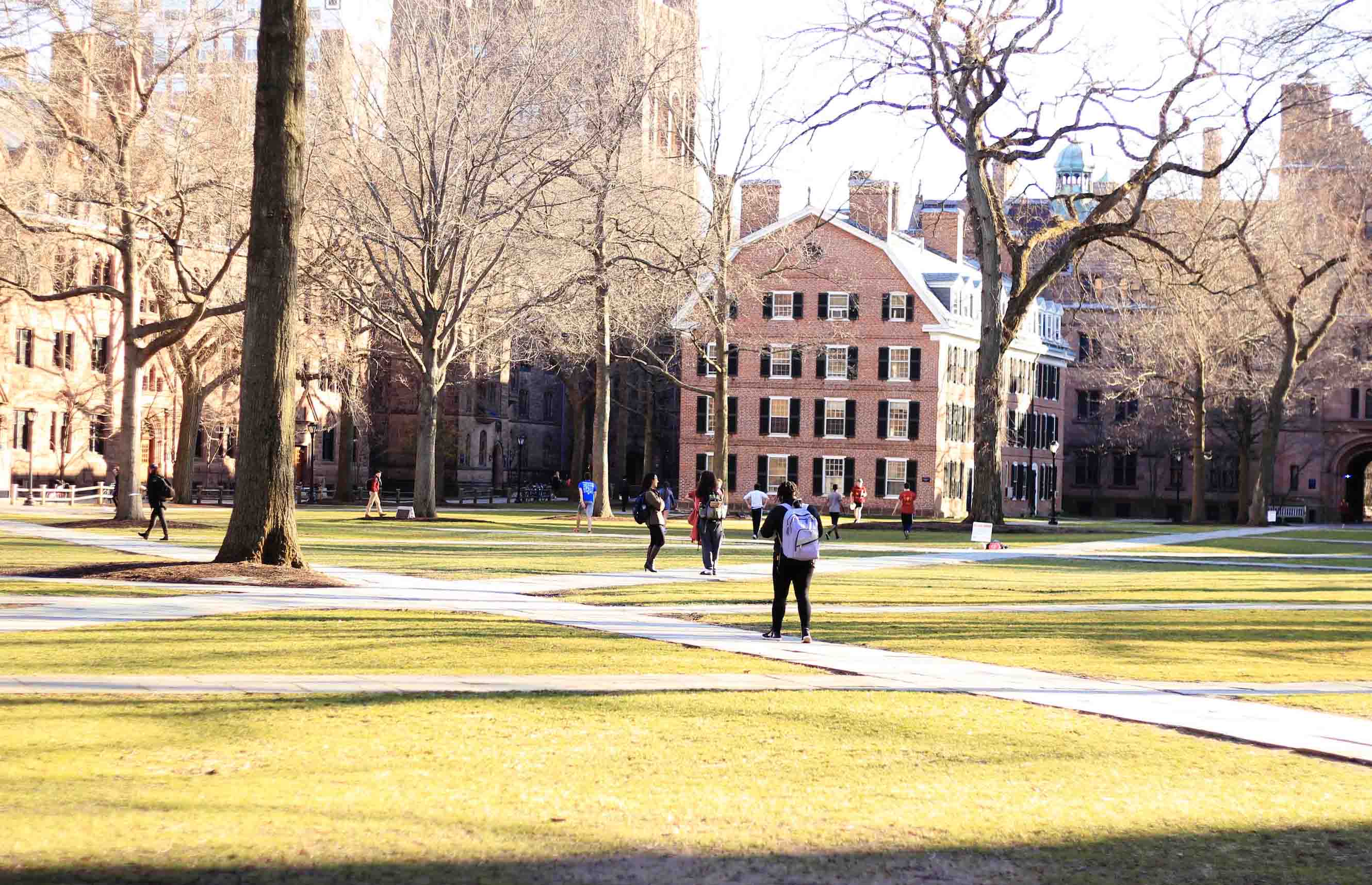
As the University considers replacing the term “freshman” with the gender-neutral term “first-year,” several administrators have begun using the language in their official correspondence with students in advance of any formal change.
According to Assistant Dean of Student Affairs Hannah Peck, freshman counselors will now be recognized officially as “first-year counselors.” In an email to the News on Wednesday, Yale College Dean Jonathan Holloway said there were no new developments in a strategic plan for the change or a formal timeline for its implementation.
Still, in an acceptance email Peck sent to next year’s class of FroCos, she referred to the position using the new name and did not give an explanation for the change. And in an email to Timothy Dwight students about housing arrangements, TD Dean Sarah Mahurin used both “first year students” and “freshmen.”
Dean of Student Affairs Camille Lizarríbar, who is leading the name-change efforts, previously told the News that administrators were committed to replacing the term “freshman” and that the change would likely become official before next academic year starts.
“What I think you’re seeing is a natural evolution,” Holloway said. “That is, some things will change easily but the term [“freshman”] itself is woven deeply into so many aspects of life at Yale that if this change becomes formal policy it might take as long as a year for the change to be complete.”
While the debate over renaming Calhoun College and replacing the title of residential college master provoked widespread student activism in the form of protests and petitions, the proposed switch to “first-year” has been less contentious, with several students interviewed expressing ambivalence about the issue.
“The change seems like a solution without much of a problem,” said Brendan Hellweg ’18, an incoming FroCo in Silliman and a former staff reporter for the News.
Some students are also skeptical about whether an official change will have any impact on what words students use in informal conversation.
Gessica Ni ’17 said she expected the phrase “first-year” to simply become “another term in the term bank,” as the word “freshman” is already ingrained in the vocabulary of higher education.
Still, other students recognize that the switch could have a positive impact on those who feel marginalized by the term “freshman.”
Diego Fernandez-Pages ’18, who will be a FroCo in Trumbull next year, commended the administration for making the move before students called for the term to be replaced. He noted that the change is part of a broader national movement for gender inclusivity, as students at universities nationwide are calling for gender-neutral bathrooms and housing.
Dartmouth, Cornell, Amherst, the University of North Carolina at Chapel Hill, for example, have already replaced the term “freshman.” Tom Dingman, Harvard dean of freshmen, said “some have been encouraging use of the term first-years [at Harvard].”
“I think that if the term ‘freshman’ is offensive to anyone, or technically is gender-excluding through its use of the word ‘man,’ then changing it to ‘first-year’ makes sense and doesn’t bother me,” incoming Silliman FroCo Camila Franco ’18 said. “It’s a small change that could mean something good to someone, so why not do it?”
There are currently 1,373 freshmen in the class of 2020.
Correction, March 30: The previous version of this article misstated Tom Dingman’s title. Dingman no longer serves as interim dean of student life.







